Good morning—
On November 19 at 2 p.m. US Eastern I will give the first of two lectures as the Annulet Inaugural Linkages Lecturer. I will give a talk entitled “When you get someplace new, learn to read the landscape like an alphabet”. This talk will be broadcast online, for free. To register, please click here.
On November 21, I will read and talk with Majed Mujed and Hua Xi as part of the Trinity College Literature & Resistance Series, in the Trinity Long Room Hub. You can book a place here (in-person only).
On December 10 at 2 p.m. US Eastern I will give the second of the Linkages Lectures. I will give a talk entitled “On the line”. This talk will be broadcast online, for free. To register, please click here.
Once these are done, I am never doing anything in public again. For at least a month. But I’m sure by the start of the new year I will be full of vim again. If you’d like to have me to read or speak at your university, school, class or organization in 2024, please drop me a line.
One day, the light changed and it was: late fall. Or early winter. In the mornings the air is damp and cutting. In our apartment, the windows are covered so thickly in condensation that if it is overcast, the condensation stays all day. Even opening the windows doesn’t always get them to dry out, so our apartment is damp and cold, even with the heat on. A student returns a book they borrowed and it is stippled with lavender mold. My room is so damp, they tell me, and I can see they are ashamed to return the book in this condition, but I’m thinking: what about your lungs? What about your bedding? Spray some vinegar on the book and it will be fine, but bronchioles are a little more delicate.
I look across the back yard to our landlord’s house, and notice that his windows never have condensation on them. Then I take a squeegee and open the window and carefully wipe the water off the window, into the cold outside air.
Despite the sharpness of the damp-cold, on days when the sun is out it’s easy to get overheated. I bike across town to meet hundreds of other people in front of embassies and monuments. When I leave the house I’m wearing two sweaters, long underwear, a jacket, a scarf, a hat, mittens. When I arrive on foot, my bike locked up elsewhere, I have unzipped my jacket, removed my hat and scarf. The sun of early November comes through the golden leaves of sycamores and hazels, and through the mist rising from asphalt in this city of aggressive drivers and tall yellow buses, this city guided along its north and south by straight-edged canals. In cities where the buses are running and the ordinary chores remain to be done—the groceries, the laundry, the dishes—all over the world, there have been people meeting in front of monuments, in front of embassies, in the cool damp air.
As we walk I hear Sister Rosetta Sharpe playing, singing | hear Mahalia Jackson singing: this is the tempo of this kind of walk, to me. We are here for one another’s liberation; we are here for refusal (a refusal we can only do together). What a joy to be able to refuse together, what a tender obligation. Lay down my sword and shield, down by the embassy, down by the armaments manufacturer, down by the multinational corporation benefiting from indentured labor, down by the university, down by the side of the canal, with you. Under the golden leaves some people are crying, and some are shouting, and some are silent, and all of us are together, warmed by the light in the sky that cannot be owned and belongs to all of us.
This week I have been listening to The Alchemy Lecture: Five Manifestos for the Beautiful World, organized by Christina Sharpe at York University (CA). (I’m not sure how long this recording will be available. Information about the series is here. Last year’s Alchemy Lecture is published and available here.) The manifestos are given by Joseph M. Pierce, Phoebe Boswell, Cristina Rivera Garza, Saidya Hartman, and Janaína Oliveira.
One thing I have thought about as I listen is the difference between event-makers who consider the audience a coequal presence with the speakers, and event-makers for whom the audience is an afterthought, or not a thought at all. One way care for audience shows up is in the way event-makers think about architecture. By architecture I mean the shapes of rooms, the way chairs are set up, the ways one can come in and go out of the space, the way eye contact is or is not made (and with whom), how hospitality is broadcast (in body, speech, arrangement, sightlines…), the way that one’s ticket is or is not taken, the organization of space and space-use so as to make it possible to feel one is permitted—or even welcome—to be there (or not), as well as normalization of access (using microphones, having interpreters, asking for masks to be worn, ventilating/filtering air, spaces for all kinds of bodies to sit or be comfortably). These ‘little’ things (they aren’t little—they are worldmaking) are so often neglected because they do not seem glamorous. In fact they are mostly deglamorized, seen as killjoy problems, made to seem a little embarrassing or outrageous, in the way of fun (for whom?).
But I think this kind of space-making, audience-oriented care, and all the choices that doing it requires, are the entire fabric of our relation. And such care often underpins events that are in their entirety rich, carefully made, thoughtful, exciting—why? Because someone who has stood in the back of a hall and washed dishes knows what it’s like to feel not-in-the-room and moreover knows how to make a room, in all its detail, that doesn’t do that to others; someone who has felt invisible or isolated knows what it’s like to be welcomed, against expectations, and so how to attend to real and deep hospitality. Someone who has done or pays attention to the kind of work that makes an institution run—whether teaching composition on an adjunct contract or cleaning toilets and emptying garbage cans or getting up early to chop onions in an institutional kitchen—knows that that labor’s invisibility or lack of ‘glamor’ is not a picture of its dignity, meaning, or value. There is a moment when, in her introduction, Sharpe speaks directly to the workers who clean, make food for, and maintain the university where this lecture is about to take place. That is the kind of thought and attention that to me is a harbinger of a beautifully made event.
Showing care for these ‘little’ (not little!) things is almost always, in my experience, a sign that the careful making will be thorough—that everything made by this intelligence will be attentive and aware that to give an event means to ask people to live toward death with you a while. And so it is with these lectures, which are audible (! recordings aren’t, always!) and smart and interesting and given with a rigorous towardness for the audience, whose living presence the organizers and speakers have clearly considered just as much as they have considered their own there in the room. It goes without saying that the ideas and ways of making them that the five speakers offer are worth your time—I hope you’ll give them a listen/watch while you can.
Another student, in a conference, says they hadn’t wanted to show me their work because it is ‘not poetic’. And then they show it to me and it is so meticulously observant of their everyday life, their everyday language; it is beautiful. Look, I want to say to that student, to myself, to all of us: there isn’t any poetry out there that could be more beautiful than your steadfast attention to how things are, where you are, what they mean, how they work, in the language of your body and house and family, religion, region. There is no received form or received understanding of aesthetic pleasure that could ever be as beautiful as this description of your bus ride. And if you look closely at your bus ride for long enough I think it will also teach you how(s) to think through the questions that might seem far off but are in the end intricately related to it: how to be together. What a life is for. What kinds of things we want to make, with one another, for one another, in this world that is continually ending.
And finally—
Let all beings be free, safe, beloved, and well.
Stop the bombs. Swords into ploughshares. Free Palestine.
Thank you for reading. See you in a week—




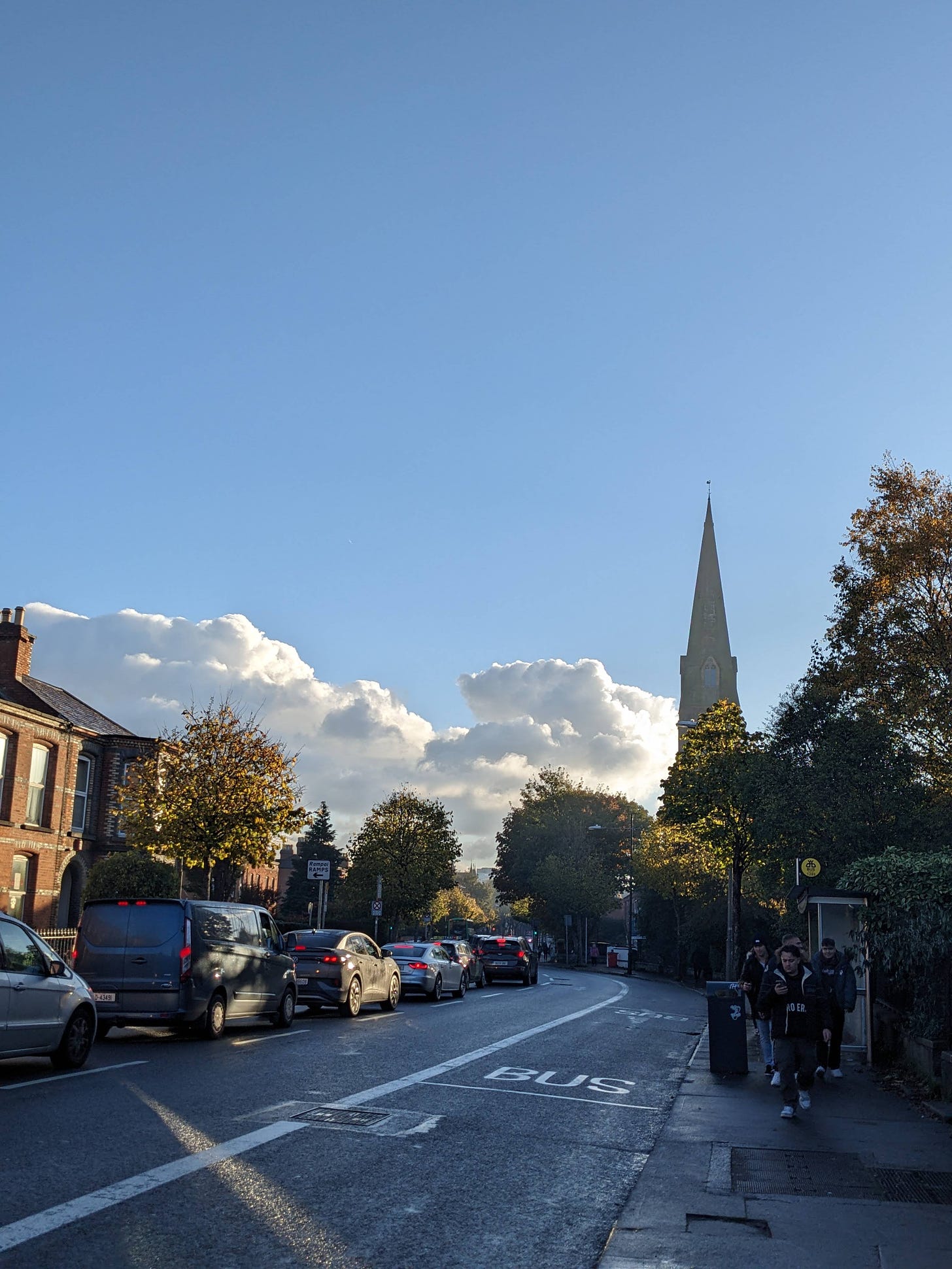
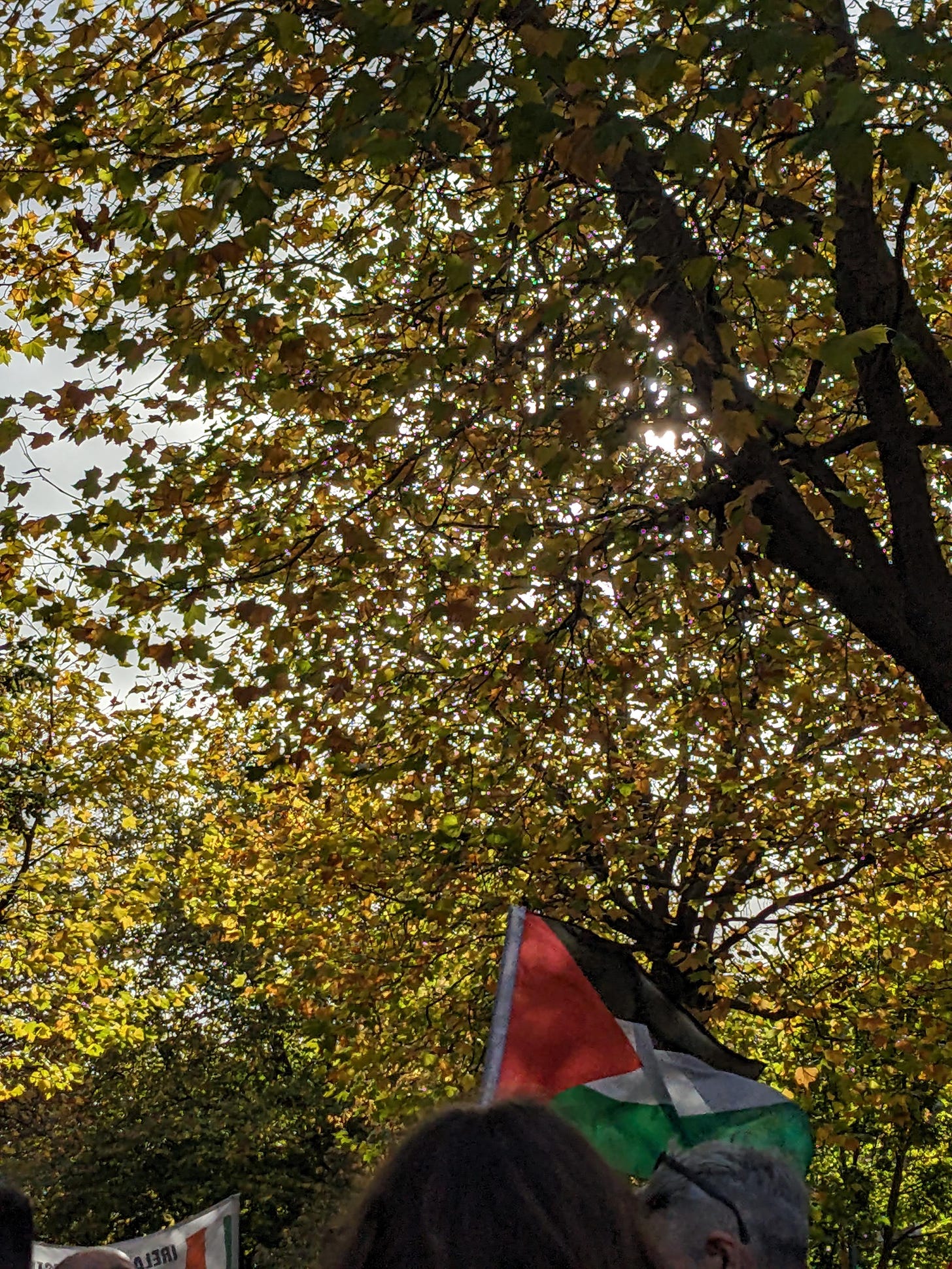
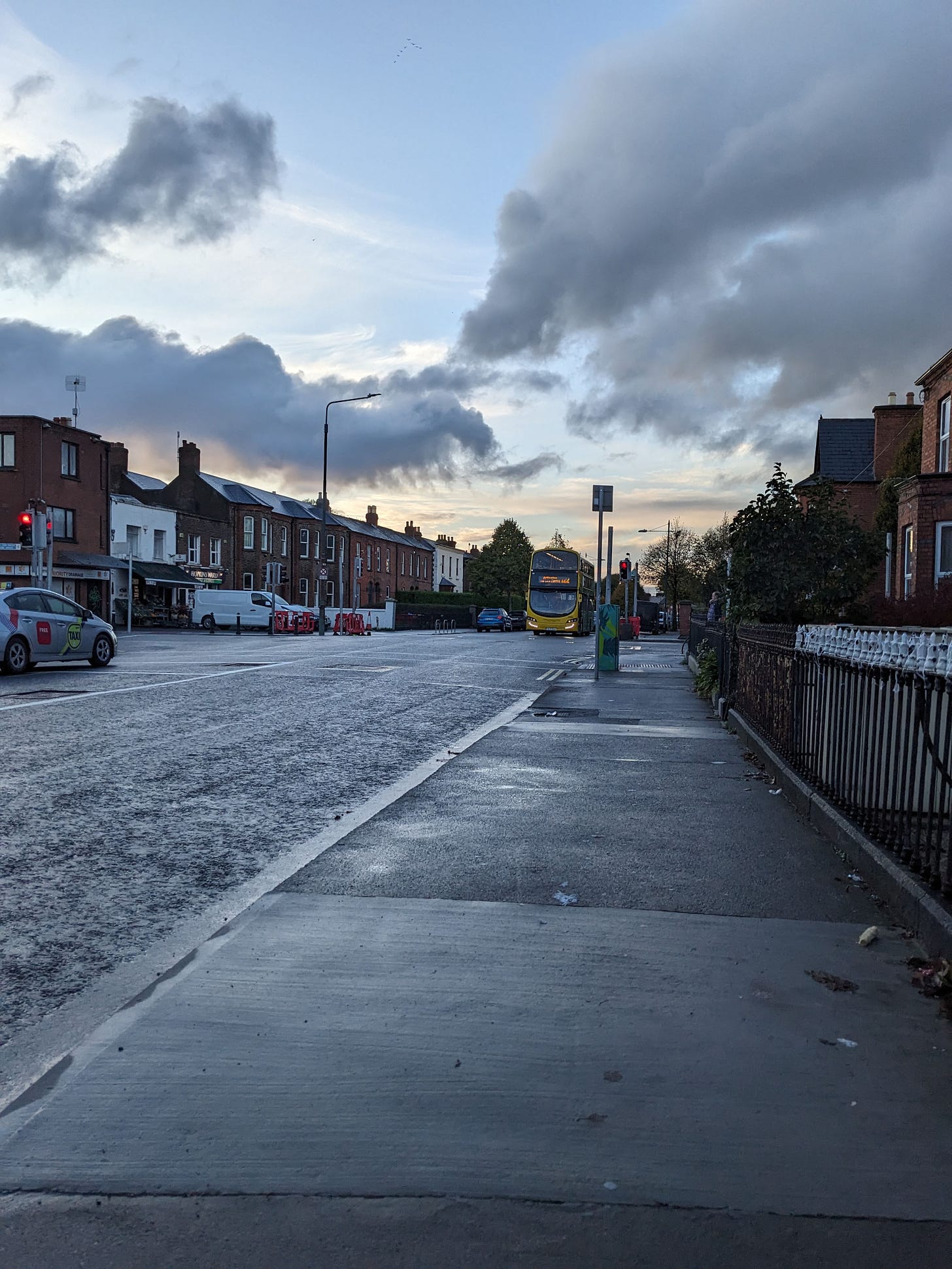
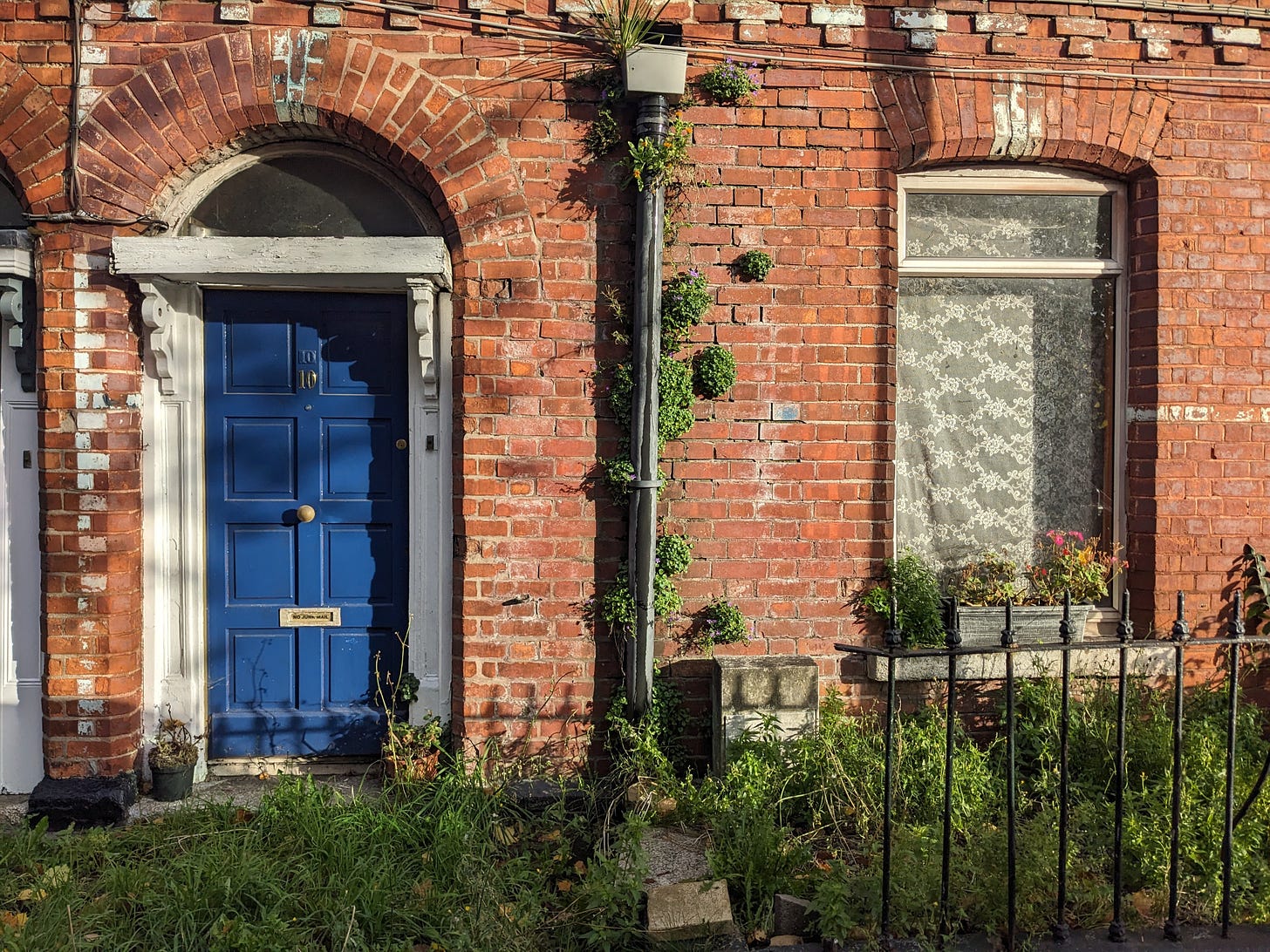
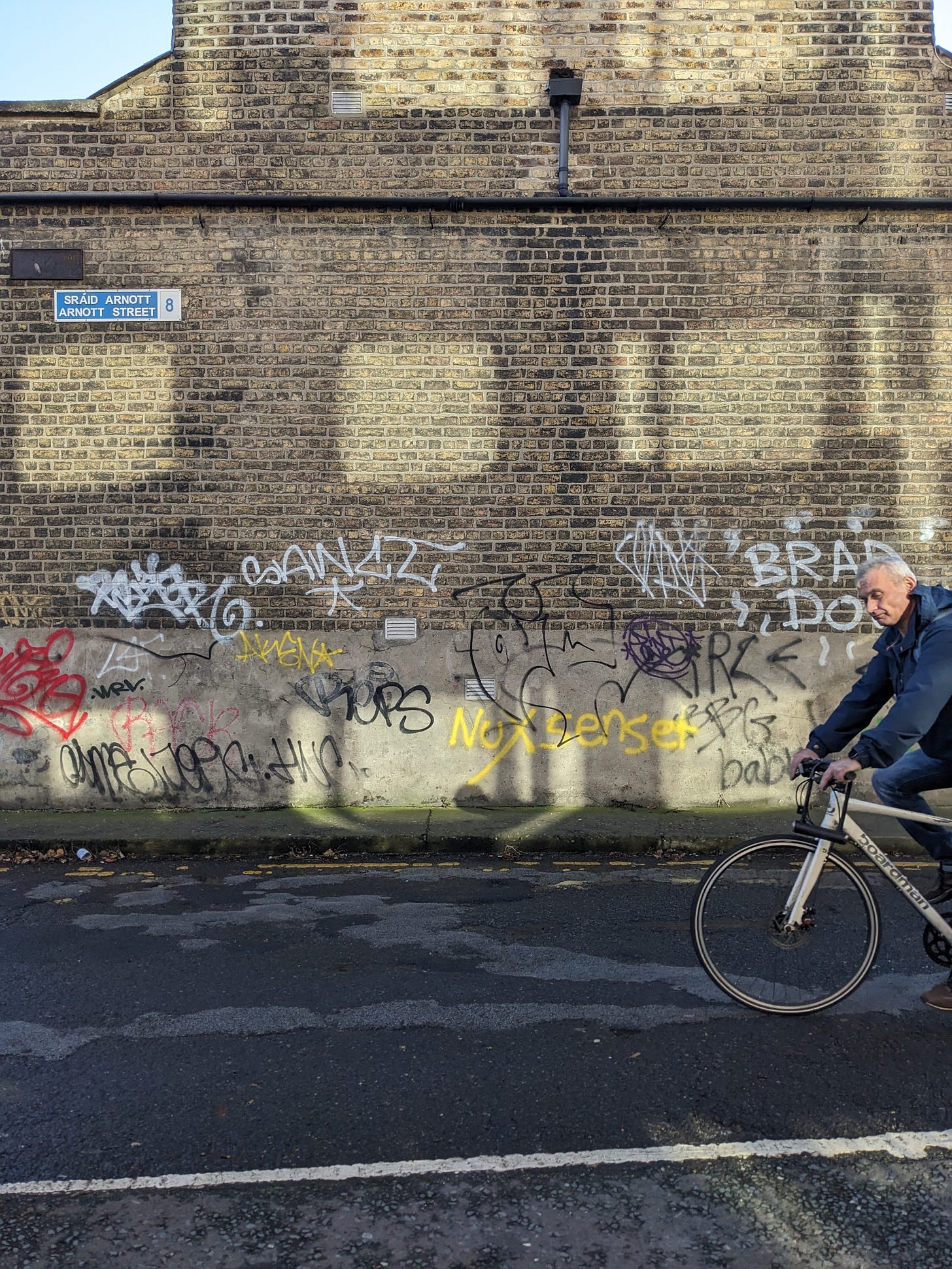
🤍🤍🤍